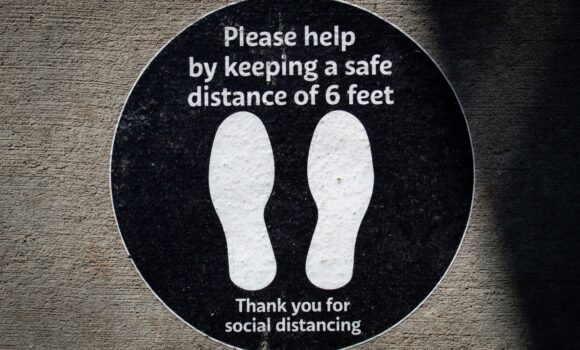Who’s Liable in a Truck Accident?

Understanding Truck Accidents and Liability
In March, The Department of Transportation lifted the hours-of-service rules for commercial drivers that are needed to deliver essential goods for COVID-19 relief. This means that truck drivers have no limits as to how many hours they can be on the road. Since longer driving hours can cause a truck driver to be fatigued and less alert, this can put all motorists on the road at risk of a trucking accident.
Even though the hours-of-service rules have been lifted, truck drivers are still responsible for following safety regulations while driving. Should a trucking accident occur, victims can sustain a severe injury or even worse — death. It can also leave you and your loved one in a tight financial situation. Here’s what every motorist needs to know about liability and trucking accidents.
Determining Liability
Determining who is responsible for a truck accident that has caused injuries to a victim can involve a few different parties. This may include the following:
- The truck driver.
- The owner of the truck or trailer.
- The individual or company that leased the truck or trailer.
- The manufacturer of the truck as well as the manufacturer of the tires or other parts of the truck that may have been a contributing factor in the accident.
- The entities involved in the shipping or loading of freight (for cases that may involve improper loading of cargo).
Common Causes of Truck Accidents
In the state of Missouri, truck accidents are not uncommon, and those who are involved can sustain catastrophic or fatal injuries as a result. Here are some reasons why truck accidents happen so frequently.
Driver Error
While truck drivers go through safety training and have a responsibility to drive cautiously, they can make mistakes when on the road. Some of the following things can impair a truck driver’s judgment and reaction time when on the road.
- Drowsy driving – driving when fatigued
- Drunk driving
- Driving under the influence of drugs
- Distracted driving – texting, talking on the phone or eating while driving
- Reckless driving – tailgating, speeding, ignoring road signs and rules
Improper Vehicle Maintenance
Trucks take on a great deal of wear and tear as they drive hundreds to thousands of miles every day. When a truck isn’t getting regular maintenance, its equipment can fail and pose an accident risk.
Faulty Parts
While improper vehicle maintenance can cause equipment to fail, truck parts that are not appropriately manufactured can also be the cause of an accident. If defective, these components of a truck can cause a significant collision with dire consequences:
- Brakes and brake systems
- Tires
- Windshield wipers
- Steering controls
- Fuel tanks
- Lights
- Rear underride guards
Inclement Weather
Whether rain, snow, or ice, truck drivers often have to drive in inclement weather. Due to the enormous weight and size of a tractor-trailer, it can be difficult to maneuver if they have to make a quick stop. According to the Federal Motor Carrier Safety Administration (FMCSA), stopping time for a truck is much higher than that of a regular passenger vehicle.
A truck that is traveling at 65 MPH will take up to two football fields to make a complete stop. If another motor vehicle is directly in front of it, this will not leave enough distance for the truck to stop in ample time, and the chances of having a serious accident are very high.
Improper Loading of Cargo
There are specific rules and regulations that truck drivers and cargo loaders must abide by. When loading a truck, they must consider the following:
- Weight of the load
- Size of the load
- Length of the load
- Width of the load
- Height of the load
Making mistakes or being negligent when loading a truck can cause the cargo to fall into the road as well as making the weight distribution of the vehicle off-balance and can increase the risk of an accident.
What is the Commercial Driver BAC Limit?
Commercial drivers have stricter standards when it comes to blood alcohol concentration (BAC) limits. A regular motor vehicle operator would be considered driving under the influence with a BAC level of 0.08%. The FMCSA has established that CDL commercial motor vehicle operators are found driving under the influence if their BAC level is at a minimum of 0.04%.
How To Stay Safe on The Road
While you can’t prevent an accident on the road entirely, driving defensively can decrease your risk of being involved in a serious accident. Following these tips can help you stay safer on Missouri roads:
- Keep your eyes on the road ahead of you
- Maintain a proper following distance
- Limit driving distractions (don’t talk or text while driving, fumble with the radio)
- Be aware of your surroundings
- Drive at the mandated speed limit
- Don’t depend on other drivers’ judgments
- Avoid driving aggressively
- Be aware of your blind spots
How to Protect Your Rights After a Truck Accident
Sustaining an injury from a truck accident can be devastating, and many people are unsure about what to do next. Following these steps can help protect your rights after being involved in a truck accident::
- Call 911 immediately
- First and foremost, if you have sustained an injury, calling for help can ensure that you get the medical attention that you and your passengers need as soon as possible.
- Gather information
- If you can, it’s crucial to get the following information:
- Name and contact information of the truck driver
- Names and contact information of any witnesses to the accident
- Truck driver’s operator’s license number
- Name and contact information of the truck driver’s employer or trucking company.
- Take pictures of the accident scene for further evidence
- Contact a personal injury attorney to learn your rights
The above steps may also provide helpful evidence as to who is liable.
At Strong Law, , our Springfield truck accident lawyers are on your side, working tenaciously and aggressively to pursue the compensation you deserve. Trust us to safeguard your rights and to be your voice after a truck accident.
Tell Us About Your Case
Contact us today at (417) 887-4300 or online to arrange your free case evaluation. Our Experienced Trial Attorneys will walk you through your legal options.


